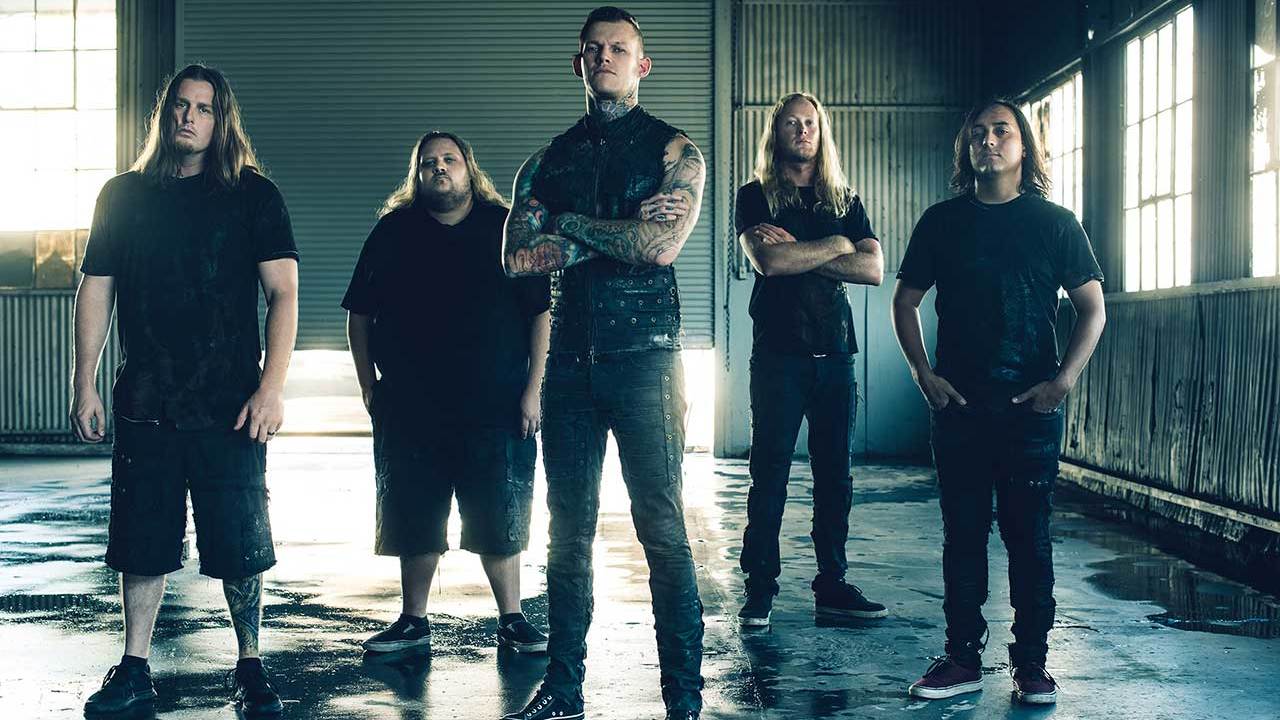Carnifex: What does it mean to be deathcore?
Talking to Carnifex frontman Scott Lewis about the true meaning of deathcore and their new album Slow Death

Carnifex’s new album Slow Death is nothing short of a revelation. While previous albums have showcased an enjoyable but relatively straightforward blend of thunderous deathcore and creepy schlock, the new one is an outright metal monster, bulging with killer hooks and moments of spine-tingling, horror-drenched atmosphere. If you thought that deathcore was battling with the law of diminishing returns, Slow Death proves otherwise. We spoke to frontman Scott Lewis about the San Diego band’s dogged devotion to making a hellish racket, and what the deathcore tag means to them.
The new album seems to mark a significant evolution for Carnifex. How do you explain the progress you’ve made?
“Everyone’s looking for their own identity, and I think we really tried to write something that you didn’t hear on any of the previous albums. It’s a challenge, to still be you but to present a side to you that’s really fresh. When you hear it, you’re gonna know it’s us, but no one’s going to say ‘That’s a Hell Chose Me b-side…’ We wanted to avoid someone listening to a song and thinking that it could’ve been an extra track on a previous album.”
Did you change the way you work this time round?
“We incorporated a lot more programming on this album, and we really made a point to make atmosphere in all the songs and make each song really distinct, with its own tone. I think we accomplished that. We wanted every song to sound unique. We wanted to make sure that not every song was the same. If you look back at classic records like a Zeppelin record or a Pink Floyd record, they had love songs, political songs, mellow songs, angry songs… they were albums that were full of diversity and that had a number of different styles, and that gives you more range.”
How do you feel about the ‘deathcore’ tag at this point? Is it a blessing or a curse?
“It depends on the context. If you look at it literally, in terms of the homogenisation of death metal and metalcore, you can look to a number of bands that fit that description. But it becomes an assumption about how people dress and what other bands they like. People like to label stuff, no matter what. You can say ‘deathcore’ to ten different people and you’ll get ten different reactions. When we’re writing music or putting together an album, we never ask ourselves ‘What genre does this fit into?’ or say ‘Hey guys, that’s not a deathcore riff!’ We just write what we write.”
The backlash against deathcore seems to have died down a lot in recent times, doesn’t it?
“Well, websites trash bands to get people to their websites. Not so much anymore, but a few years back they decided that comparing everyone to Emmure and calling everyone deathcore was the most wicked burn they could come up with! Now I think that’s pretty played out. If you look at Whitechapel and us and Suicide Silence, I think people would agree that we’re all writing genuine music. It’s not a gimmick, it’s music that we’re passionate about and that continues to carry our careers, and there’s a big fan base for it. We don’t take it lightly but we’re not sitting there pondering our existence within the deathcore sphere! We’re just being ourselves.”
Any chance you could ponder your existence in the deathcore sphere just this once?
“Ha ha! Well, it’s not necessarily the term that bothers anyone, it’s just the repeated conversation! I think, if you look at the remaining bands… look at us in 2006 and there would’ve been a lot of similarities, but ten or 11 years later, we all have new albums coming out and you’re gonna hear three really different albums – from us, Suicide Silence and Whitechapel – that are very distinguished from each other and they show each band’s integrity. We were all 20 when we wrote those first records, 20-year-old kids on MySpace, so to think that it won’t evolve and that we won’t become better musicians, that makes no sense. We liked the same stuff when we were 20 but we’ve all grown in our own ways.”
Carnifex’s new album Slow Death is out now, via Nuclear Blast.
Sign up below to get the latest from Metal Hammer, plus exclusive special offers, direct to your inbox!
Carnifex – Slow Death album review
The rise and rise of deathcore: that genre that refuses to die

Dom Lawson has been writing for Metal Hammer and Prog for over 14 years and is extremely fond of heavy metal, progressive rock, coffee and snooker. He also contributes to The Guardian, Classic Rock, Bravewords and Blabbermouth and has previously written for Kerrang! magazine in the mid-2000s.
